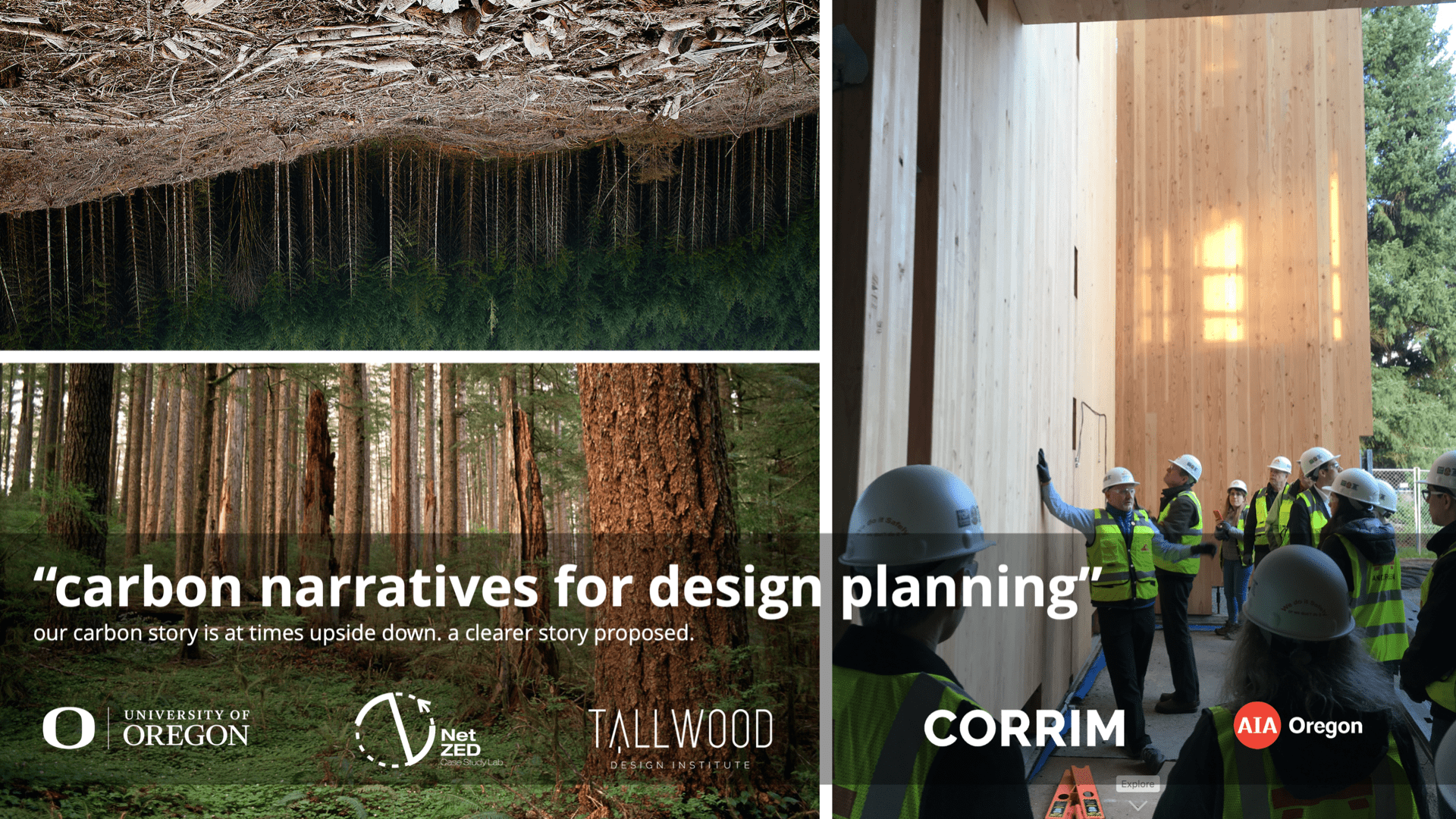Embodied carbon in building materials and construction activity represents a significant fraction of the global greenhouse gas (GHG) emissions causing climate change. Concrete, iron, and steel alone produce approximately 9% of annual global GHG emissions and the combined embodied carbon emissions from the building sector currently produce 11% of annual global GHG emissions. One material that has been gaining favor in the design community to address carbon reduction goals is mass timber.
In whole building life cycle assessments (WBLCA) the results can often be misleading on whether wood is the more sustainable material because of the range of assumptions for this newly utilized material. To address topics for which the AEC industry urgently needs more clarity, specifically: impacts of biogenic carbon based on proper accounting, forestry management practices and carbon storage in the ecosystem, end-of-life material assumptions, and stand rotation timelines, this project will use peer-reviewed scientific data and invited transdisciplinary expertise and perspectives in academia, industry, government and environmental advocacy from North America and Europe to gather for a symposium and follow-up work sessions highlighting the gaps, alternative narratives, and consensus regarding mass timber embodied carbon.

